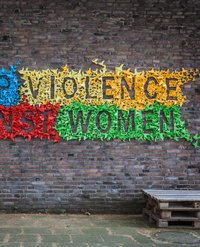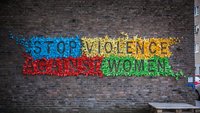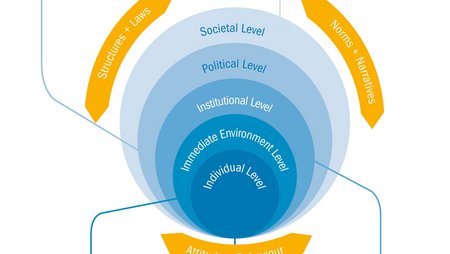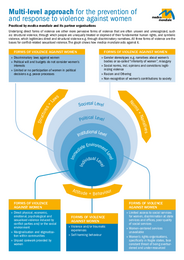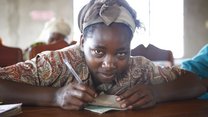What guides us: principles and values
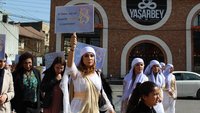
We are working to eliminate sexualised violence – worldwide. We do this by preventing violence, supporting survivors and empowering feminist action. In order to ensure the impacts of our work, we ask ourselves the following questions: What is our understanding of ‘violence’ and ‘trauma’? What are the causes and consequences of violence against women and sexualised wartime violence? Where should we target our work if we want its impacts to both prevent violence and support those dealing with the consequences of violence – societies, women and girls? Which principles and values need to guide our work as we do this?
What are the reasons for and aims of our activity?
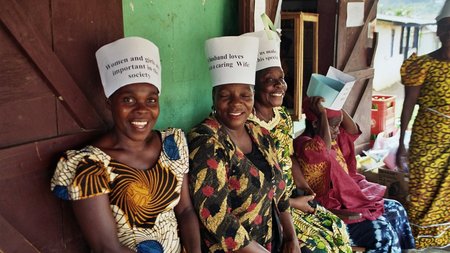
We are active as part of a transnational, diverse women's movement, within networks, and together with partner organisations working to eliminate sexualised violence and to bring about a gender-equal society. The starting point for our work has always been the struggle to eliminate violence against women and girls during armed conflict. At the international level, this has now been acknowledged to be a severe violation of human rights. We see sexualised wartime violence as being on a continuum and an intensification of structural violence against women that is committed at a pandemic scale during peacetime as well.
What is our understanding of violence against women?
Violence against women manifests as direct, structural and/or symbolic violence. Direct violence refers to violence between two people; in family and social environments , as well as in the context of armed conflict. The term structural violence refers to structures that are shaped by underlying unequal treatment of different humans and by the denial of certain people’s rights. Examples of the most persistent manifestations of structural violence include racism, exploitative economic systems, or inequality between the genders. Legitimisation of direct and structural violence occurs, for example, in narratives, songs or images: this is then what we refer to as symbolic violence. The objectification of women or the belief that they are inferior is symbolic violence that is deeply rooted in social norms, traditions and religions. This is fertile ground for sexualised violence to arise and one of the most gruesome expressions of this is sexualised wartime violence .
What is our understanding of sexualised wartime violence?
In public and political discourse, there is a frequently expressed hypothesis that sexualised wartime violence as a weapon of war has a mainly strategic character and its use is considered as an exception. In our analysis and experience this is not the full picture. Women and girls experience sexualised violence on ongoing basis and it is widespread in their social environment, in their family, and in government institutions. This is true before, during, and after armed conflicts. It is what we refer to as the continuum of violence. We understand sexualised violence to be an expression of patriarchally shaped social structures and misogynist values which exist in all societies around the world to varying extents, sometimes latent and sometimes extremely obvious.
What is our understanding of feminism?
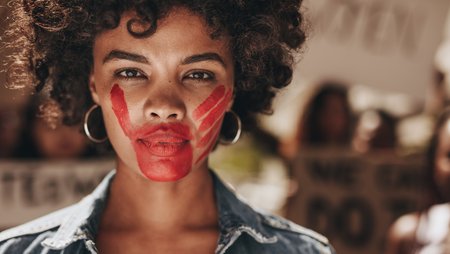
medica mondiale therefore always stands in solidarity with women and has the declared objectives of dismantling patriarchal gender relations and empowering women within their environments. For this, it is essential to consider forms of intersectional discrimination. In addition to gender attributions, other factors such as belonging to a certain class, poverty, racism or sexual orientation all have impacts which reinforce violence and discrimination. A clearly feminist view therefore always has to include intersectional analyses and implementation strategies.
What is our understanding of trauma?
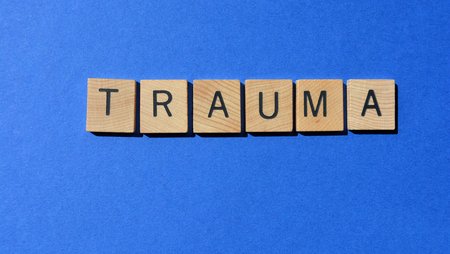
We adopt and advocate a feminist and socio-political understanding of trauma. In contrast to a purely clinically oriented view of trauma, this approach takes into account more than just the trauma of the individual woman and her symptoms: it always also includes violence as a cause of a traumatisation. We do not consider post-traumatic stress reactions to be symptoms of a disease: they are strategies for survival and defence when faced with violence, threats and oppression. We aim to make a contribution at all levels towards dealing with trauma and preventing violence, leading to a change in society itself.
What is our understanding of our multi-level approach?
For our commitment to women’s rights we have developed a multi-level approach. This is because long-term, sustainable impacts are not possible unless changes at different levels reinforce each other: at the individual level (of the person affected by violence), at the social level (in their environment), at the institutional level (in public, state and civil society institutions), and at the political and societal levels (social discourse, norms, and narratives).
Which values are we guided by?
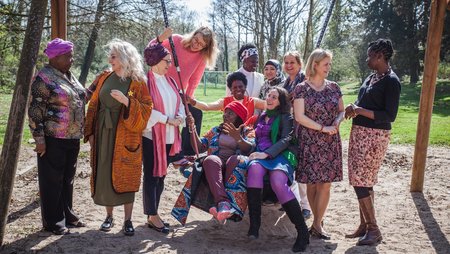
We are committed to global justice and we assume responsibility for our actions. Only in community with others can we achieve our vision.
We act in a targeted, consistent and long-term manner. Only in this way can patriarchal structures be changed.
We want our actions to impact at the individual and structural levels. This is why we assess and evaluate our work on an ongoing basis, and develop it further in a creative and critical manner, working together with activists from around the world.
